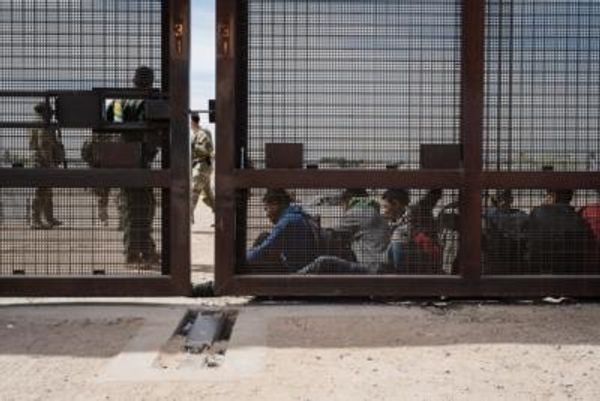Jane Yap, the operator of Hong Lan Asian Foods in West End, says she's paying 40 per cent more for electricity than the same time last year.
Now, bills are expected to increase yet again.
Electricity prices in south-east Queensland are set to rise significantly from July based on the Australian Energy Regulator (AER) draft electricity price.
The AER said customers in the region on the default market offer could expect price rises of up to 20 per cent over the coming financial year.
"I can't take it anymore. It's too stressful," Ms Yap said.
To keep costs down she has resorted to turning off three of the display freezers in the grocery store.
"It doesn't look good to customers," she said.
"They sometimes come in and ask me 'is your freezer broken?'"
When energy prices increase by a further 20 per cent, she's unsure how small businesses like hers will be able to survive.
"I can tell you many small businesses will shut down," she said.
"What we earn is just a small amount for our living costs."
So, how much will the price go up in Queensland?
The federal energy minister said south-east Queenslanders' energy bills are predicted to increase each year by an average of $321.
Small businesses will have to find an extra $669 for their power.
When will the price go up?
The regulator will announce a final pricing determination in May that will take effect on July 1.
The Australian Energy Council's chief executive Sarah McNamara said AER would firm up actual cost inputs over the next few months.
"It's too early to say at the moment whether there'll be adjustments up or down to the price rises announced," she said.
Who will be impacted?
Ms McNamara said the AER's announcement would impact customers on default market price offers.
"Default market offers are for customers that aren't on market-based offers," she said.
"Around 90 per cent of customers are actually on market-based offers, which are usually more competitive and cheaper."
The AER's decision will directly affect around 600,000 South Australian, New South Wales and south-east Queensland customers who are on the offer.
The default market offer is the maximum price electricity retailers in NSW, South Australia, and south-east Queensland can charge customers.
Will other parts of Queensland see an increase in electricity prices?
The Queensland Competition Authority (QCA) regulates prices for around 700,000 electricity customers in regional Queensland.
It also released its draft determination on regulated retail electricity prices on Wednesday.
QCA chair Professor Flavio Menezes said the overall prices would result in a 28.9 per cent increase in the annual bill for a typical residential customer and a 26.1 per cent increase for the typical small business customer.
"The annual bill for a typical residential customer is forecast to increase by $432, from $1,496 to $1,928," Professor Menezes said.
"For the typical small business customer, the annual bill is forecast to increase by $497, from $1,907 to $2,404."
But a Queensland Competition Authority report said the final determination would likely be different based on feedback from stakeholders and updated data.
The report said wholesale energy costs are expected to change with the inclusion of an additional three months of ASX market data, and updates to other cost inputs may also result in price changes.
The final determination is expected to be published in June, and prices will apply from July 1.
What is driving the energy price surge in south-east Queensland?
Ms McNamara said there had been significant challenges and upward pressures in the wholesale electricity market over the past 12 months.
"That upward pressure on prices is flowing through into the regulator's determination for retail bills in the next financial year," she said.
State Energy Minister Mick de Brenni said the war in Ukraine was impacting energy prices across the nation but that "the impact in Queensland is less than other states".
"Last year and in previous years, we've provided a rebate to ensure that the cost-of-living impact of electricity prices is mitigated for Queensland families," he said.
"In December, the forecasts were the energy costs were going to rise by 50 per cent. Both the Commonwealth and the states took action in December, and that has more than halved the forecast impact, but of course, there will still be an impact."
How do you check your current energy offer?
Ms McNamara said the announcement was concerning but underlined the importance of customers checking their offers.
"Customers really need to shop around and call the retailer," she said.
"If you are experiencing any anxiety about paying your bill either now or into the future, the very best thing you can do is pick up the phone and speak to your retailer today about your concerns."
Ms McNamara also recommended asking retailers about current concessions and rebates.
Will there be any financial relief for Queensland residents?
Queensland Premier Annastacia Palaszczuk announced in parliament households would receive a rebate on electricity bills next financial year.
"The federal government will be announcing power rebates to support some households and small businesses in the May federal budget, with support from our government," she said.
"Once these rebates are locked in, and we see the final energy prices in May, our government will go further."
Ms Palaszczuk said the rebate would be extended to all households and is planned to be higher than last year's $175 rebate.
"The Australian Bureau of Statistics has recognised that our $175 rebate last year reduced the inflationary impact of electricity prices by 14 per cent in the December quarter," she said.
Shift to renewables
Mr de Brenni said the State Government would continue to offer energy rebates as it rolls out its billion-dollar clean energy plan.
"The single-most important intervention we can make is to see more renewables, more transmission, more pumped hydro energy storage; whilst we're delivering that we'll make sure that we support households with continued energy rebates as we've done in previous years," he said.
"Renewables are the cheapest form of electricity, and when renewables make up the majority of generation, then we'll see cheap electricity across the board."







